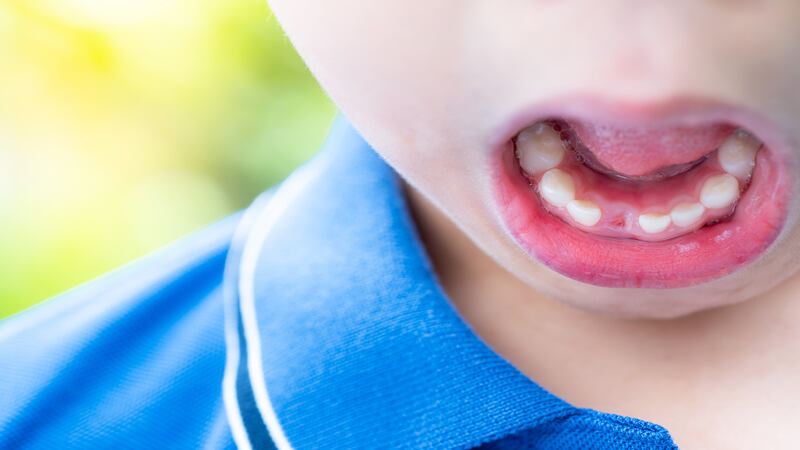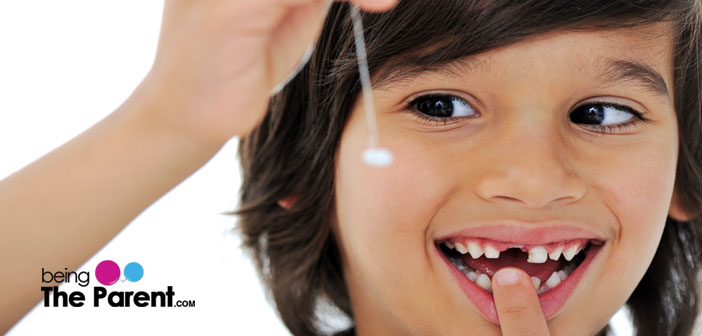
Your little one losing the milk teeth are the first sign that your infant is turning into a big boy or girl and is counted as a major breakthrough in the child’s lifespan. According to a five or six years old, losing the first milk tooth is a prestigious and ‘show off’ factor than figuring out how to ride a bicycle or even be able to read and write. Children are known to competitively track the number of teeth their classmates lose and then compare the same with them. Exchanging more exciting tooth fairy stories are also common among the children of this age group.
Aside from the child’s perspective, several mothers also get stressed if another child of the same age as her child loses his the first milk tooth earlier and her kid hasn’t yet. Let us find some truths and facts that can help to clear your doubts regarding falling off your child’s milk teeth.
When Will My Baby’s First Milk Tooth Fall Out?
The scale of normal has a wide range when it comes to the falling out of milk teeth. Most of the children are found to lose their first tooth when they are five or six years old. Some of them are found to lose it around four years. Again, another group will not get the opportunity to meet the Tooth Fairy until seven. Therefore, just as it was difficult to pinpoint precisely when the first tooth appears in your baby’s mouth, it is difficult to predict when the kid will lose the first milk tooth. More often, kids whose milk tooth sprouted early have a tendency to lose baby teeth earlier and vice versa. However, mostly, six is the age when that first tooth drops out.
How Much Time Will It Take To For A Milk Tooth To Fall Off?
Milk teeth begin to wiggle as their roots disintegrate, creating a way for permanent teeth. Permanent teeth push up from underneath the gum line and squash the roots of the milk teeth making the milk teeth more wobbly. Baby teeth, generally, stay in place until permanent teeth push them out. It usually takes a couple of months from the time a tooth turns out to be wiggly until it falls off.
Is It Alright To Extract Out The Milk Teeth Once They Begun To Shake?
On the off chance that an unstable tooth irritates your child, you can urge your child to wiggle it delicately to help it turn out speedier; yet yanking it before it is ready is bad. Yanking out a milk tooth before it is ready can:
- Cause infection: The space shaped by breaking the root will be resistless against pooling microbes and can cause infection. On the other hand, when the root breaks down its own, the odds of pooling of bacteria and chances of infection are less
- Cause teeth crowding: In the event that a child loses an infant tooth before the permanent tooth is prepared to eject, there is an increased chance for the teeth next to it floats into the vacant space. This can increase the chances of crowding and overlapping of the teeth

How Can I Prepare My Child For The Loss Of His First Milk Tooth?
Most kids find out about the tooth fairy and losing teeth from older siblings or relatives. Be that as it may, you can take necessary steps to prepare your kid for this childhood milestone. Apparently, having a waggling tooth (and loosing teeth) and gummy grin can be a blend of both excitement and anxiety. Therefore, explain the procedure in positive and age-suitable terms, clarifying that their tooth will turn out to be “wiggly” and soon will drop out because his grown-up tooth is pushing it out to come out and substitute the milk tooth. Build an excitement in the child. Tell him that this is the first sign of him becoming a big boy. All these will help to prepare the child for losing his first milk tooth.
Will The Falling Milk Teeth Cause Pain To My Baby?
Not all, but some children may complain of pain. This may be due to several reasons like:
- Shaky teeth may bring about distress as the gums around the tooth may get to be delicate or swollen. This is quite normal and will resolve itself after the tooth comes out. However, if your kid is distressed and restless, you can help the child to ease the pain by applying a cold compress to the affected area
- The complaints of your 6 or 7-year-old about soreness in the back of the mouth can be probably due to the ‘six years molars’ cutting their way up. As there are no milk teeth to clear their path, the can cause pain. A cold compress can help here too
What Is The Pattern In Which The Milk Teeth Fall Off?
The first baby teeth to fall out are typically lower central incisors (the two bottom front teeth). Later on, the central incisors (the two top front teeth) follow. After central incisors, two lateral incisors of bottom jaw will fall out, which is followed by, two lateral incisors of the top jaw. Not all the rest, (from canines to the molars) will drop until 9 to 12 years. Anyhow, by the 13th birthday, all the milk teeth of your child will be replaced by permanent teeth.
Do The Milk Teeth And Permanent Teeth Look Alike?
No. The permanent teeth do not look the same as the milk teeth.
- They have a tendency to be less white than the milk teeth
- They have ridges on the biting edges since they have not been utilized yet to bite and biting
- The permanent teeth may appear too big for the little face of the child. However, as the head of the child is growing, eventually, the size of the teeth suits the size of the face
What Care Is Necessary When My Child Sprouts His Permanent Teeth?
Remind your child that the second set of teeth is so valuable that once it gets damaged it cannot be replaced. Tell him the importance of oral hygiene:
- Prompt your child to brush the teeth at the minimum daily twice. Ask him to brush the teeth before going to bed
- Teach him to floss the teeth
- At the beginning supervise the child while he is brushing the teeth and assist him if needed
- Schedule a regular dental visit for the child. This will help in identifying any dental issues or tooth decay at the earliest
- Encourage the child to eat tooth-friendly foods (sweets and carbonated drinks are harmful to the teeth)

My Baby Is Already 6, But His Milk Teeth Have Not Yet Fallen
Apparently, the parents worry when the milk teeth of their child do not fall even after the 6th or 7th birthday. Most likely, there won’t be any issues. However, sometimes there may be some developmental issues that require some professional attention. Some of the reasons behind this issue are:
- If the milk teeth have no underlying permanent teeth
- Overcrowding of underlying permanent teeth can hinder with the pushing out of the overlying milk teeth
- If there are one or many extra teeth (hyperdontia), it blocks the natural eruption procedure of the permanent teeth thereby delays the falling of the milk tooth
When Should I Seek The Dentist’s Advice?
- If the first milk tooth has not fallen even after your child turns eight
- If the milk teeth fall out prematurely, that is, before the permanent teeth are ready to erupt. This generally occurs because of some accidents that cause injury to the teeth or due to tooth decay
- If the milk tooth doesn’t seem to come lose sufficiently (being resistant) and remains in the place even after few months
- If your child starts to lose the milk teeth before four years old
